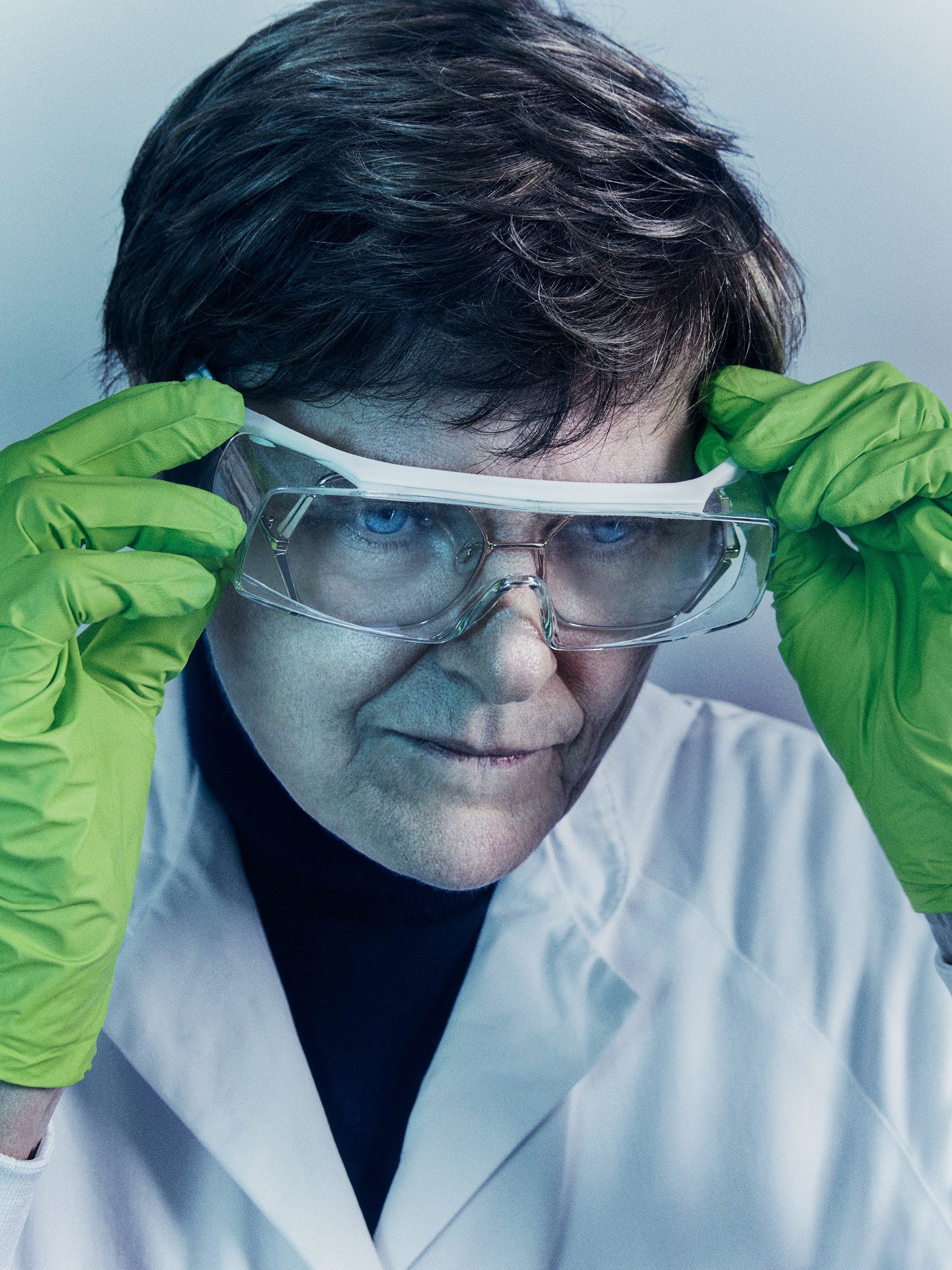It was an unlikely collaboration, and it began in an unlikely place, but the partnership that Katalin Kariko and Dr. Drew Weissman formed in the 1990s at the University of Pennsylvania has now led to a shared Nobel Prize in Physiology and Medicine.
Kariko and Weissman were awarded the Nobel for their work in tweaking the genetic material mRNA to make it more amenable to working in vaccines. Their discovery led to the first approved mRNA vaccines, targeting the COVID-19 virus, in 2020. And that success is seeding mRNA-based strategies across a number of different conditions, including other infectious diseases as well as cancer.
Kariko’s husband answered the call from Stockholm early in the morning on Oct. 2 at their home in a Philadelphia suburb. She told nobelprize.org that she initially thought “somebody was just joking.” While she said the conversation involved detailed scientific information that would have been hard to fake, “you never know in these days,” she said.
True to their long-time partnership, Kariko then called Weissman to break the good news. In fact, the early morning call likely reminded him of years of similar emails he and Kariko would exchange at dawn when they were working to crack the problem of turning mRNA into reliable therapies.
That collaboration began at the copy machine between their offices at the University of Pennsylvania. Kariko was obsessed with mRNA, which is the part of DNA that codes for proteins, convinced that it would be the key to developing new treatments for heart disease, stroke and other conditions. Few scientists at the time agreed, since RNA was much less stable than DNA, and despite years of dedicated, unflagging research, Kariko had little to show in the form of results.

Then came the chance meeting with Weissman at the copier in 1997. Weissman is an immunologist and physician and had come to Penn from the National Institutes of Health to continue developing a vaccine against HIV. The more gregarious Kariko tried to sell her colleague on the merits of mRNA, and Weissman listened.
To make mRNA a useful tool for treating people, however, Kariko needed to find a way to suppress its tendency to aggravate the immune system, which ended up creating a dangerous inflammatory reaction and destroying the very mRNA that was supposed to be therapeutic. Their personalities couldn't be more different—according to Kariko, Weissman said she tended to zig and zag to generate ideas, while he preferred the more straightforward approach. Still, “we worked side by side," said Weissman. But their research wasn't popular, either with the leadership at the university, or with the scientific community. "We couldn’t get funding [for our research] we couldn’t get publications [for our work], we couldn’t get people to notice RNA as something interesting,” Weissman said during a press briefing after the Nobel announcement. “RNA had failed in clinical trials, and pretty much everybody had given up on it.”
But the over the next decade or so, Kariko and Weissman tenaciously proved the doubters wrong. They eventually figured out that changing one portion of the mRNA code would make it less likely to stimulate the immune system. Not only that, the change also led cells in animals to produce more of the desired protein coded for by the mRNA—exactly what they needed to turn mRNA into a robust vaccine or other treatment.
But even when the scientists published what they thought was their ground-breaking finding in 2005, the scientific community barely noticed. Doubters still prevailed, and Kariko was “kicked out from Penn, and forced to retire,” she said. Eventually, she was hired by BioNTech, a German biotech that shared Kariko’s vision about the promise of mRNA technology. When reached for comment, a spokesperson at Penn did not directly address the circumstances of Kariko's leaving the university.

That faith was finally borne out when two mRNA-based vaccines, including one made by BioNTech and Pfizer and another by U.S. biotech Moderna, became the first to be authorized and approved to treat SARS-CoV-2, and remain the foundation for the pandemic response. Kariko’s conviction was finally justified—more than two decades later—that mRNA would make an efficient, and potentially more powerful platform for treating disease. Now, researchers are developing mRNA-based vaccines to target other infectious diseases such as mpox and influenza, and the strategy is even showing promise against cancer, as a way to train the immune system to recognize tumors. Because the technology is still so new, scientists are still learning about any side effects of the platform—mRNA vaccines have so far been linked to a slightly higher risk of some heart inflammation, for example—but given that millions of people have received the shots, so far the benefits appear to outweigh the risks.
While it generally takes nearly a decade for the Novel Committee to recognize most physiology and medicine research, the group told Weissman that the committee was eager to be more current in honoring pioneering work. While most of mRNA’s promise remains to be seen, it’s success in controlling a pandemic and changing the way vaccines are made has more than earned it a place, along with its early champions Kariko and Weissman, in medical history.
More Must-Reads From TIME
- The 100 Most Influential People of 2024
- Coco Gauff Is Playing for Herself Now
- Scenes From Pro-Palestinian Encampments Across U.S. Universities
- 6 Compliments That Land Every Time
- If You're Dating Right Now , You're Brave: Column
- The AI That Could Heal a Divided Internet
- Fallout Is a Brilliant Model for the Future of Video Game Adaptations
- Want Weekly Recs on What to Watch, Read, and More? Sign Up for Worth Your Time
Contact us at letters@time.com